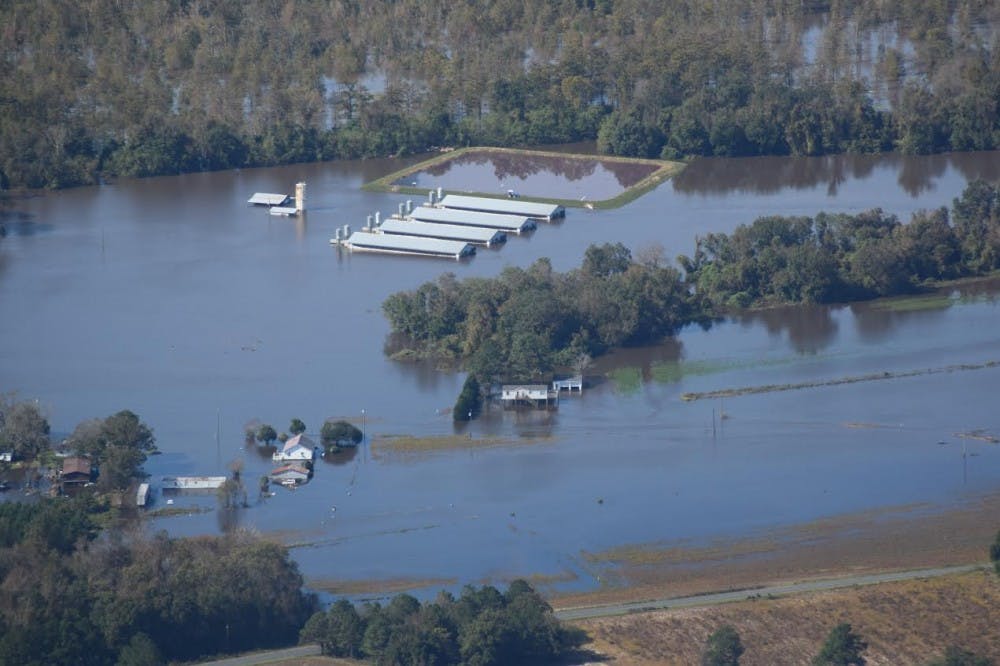Tom Reeder, assistant secretary for the environment for the N.C. Department of Environmental Quality, said he has received reports of 11 hog farm waste lagoons that have been flooded, or had water rise above the lagoon walls.
Reeder said the N.C. DEQ has staff inspecting hog farms throughout the state and expects to have a full report of the damage around the end of next week. He said he has not received any reports of a breached lagoon, or a lagoon that has been structurally compromised.
Michael Mallin, a research professor with UNC-Wilmington’s Center for Marine Science, said these lagoons contain highly concentrated amounts of fecal bacteria and viruses.
“It’s a human health danger, as many people can come in contact with the water,” he said.
Mallin said flooded lagoons create the possibility of fecal waste flowing to the ocean, which could damage fish and plant life.
Smithfield Foods, which owns the world’s largest hog-processing plant in the town of Tar Heel, released a statement concerning the impact Hurricane Matthew has had on its facilities.
“We have one report of floodwaters rising into the lagoon at one of our contract farms,” the statement said. “This remains a serious, life-threatening situation, and our top priorities continue to be the safety and well-being of our employees and the care of our animals.”
Mallin said there are other alternatives to storing waste produced by hog farms — involving recycling and reducing the fecal waste — but these would be more costly.



